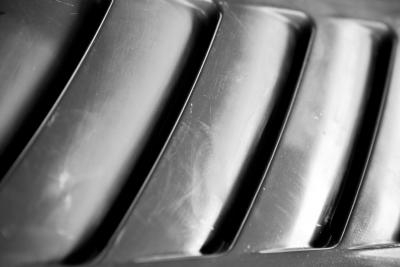
Automotive air-conditioning stop leak products can be applied to a vehicle's low-pressure fitting to help seal small leaks in the air-conditioning system. However, there are pros and cons to using stop leak that provide important considerations. In some cases the stop leak can do more damage than good, with the risk that you may not be able to predict whether it will help fix or hurt your air-conditioning system until it has already been applied.
Automotive air-conditioning stop leak can help to seal low-side pressure O-ring leaks. However, according to YouFixCars, if the O-ring is on the high-pressure side of the air-conditioning system, the stop leak will have a 50 percent chance of working correctly. Even if the stop leak does not fully plug up the refrigerant leak, you may only have to recharge your refrigerant once a year rather than several times throughout the year. Even with annual recharging, using the stop leak and doing your own refrigerant recharge can still be cheaper than replacing air-conditioning components. Some stop leak products also make money back guarantees.
According to ImCool, technicians must first inspect an air-conditioning system prior to determining whether or not stop leak would be appropriate. Part of the inspection process involves ensuring that the air-conditioning system is both clean and void of moisture and air. "Most professionals consider a sealer to be a last resort," when the leak can't be found through traditional inspection methods or is located in the evaporator.
According to an interview with stop leak product manufacturers on AirCondition, many stop leak products do not work well with compressor seals. Part of the reasoning is the excessive vibration of the compressor leads to leaking through the compressor shaft seals or spring lock couplings. Another reason for a minimal, if any, effectiveness of stop leak products on the compressor is the component's design of pumping and circulating refrigerant, preventing the stop leak material from settling into some or all of the seals.
Stop leak sealers also run the risk of contaminating and degrading the air-conditioning system. According to ImCool, some shop owners claim that sealer has the potential to contaminate refrigerant recovery equipment, which is used by automotive professionals when air-conditioning systems are purged. There is also the potential that if mechanics refuse to work on air-conditioning systems that have been injected with stop leak products, consumers may turn to unscrupulous mechanics who will release the refrigerant into the atmosphere.